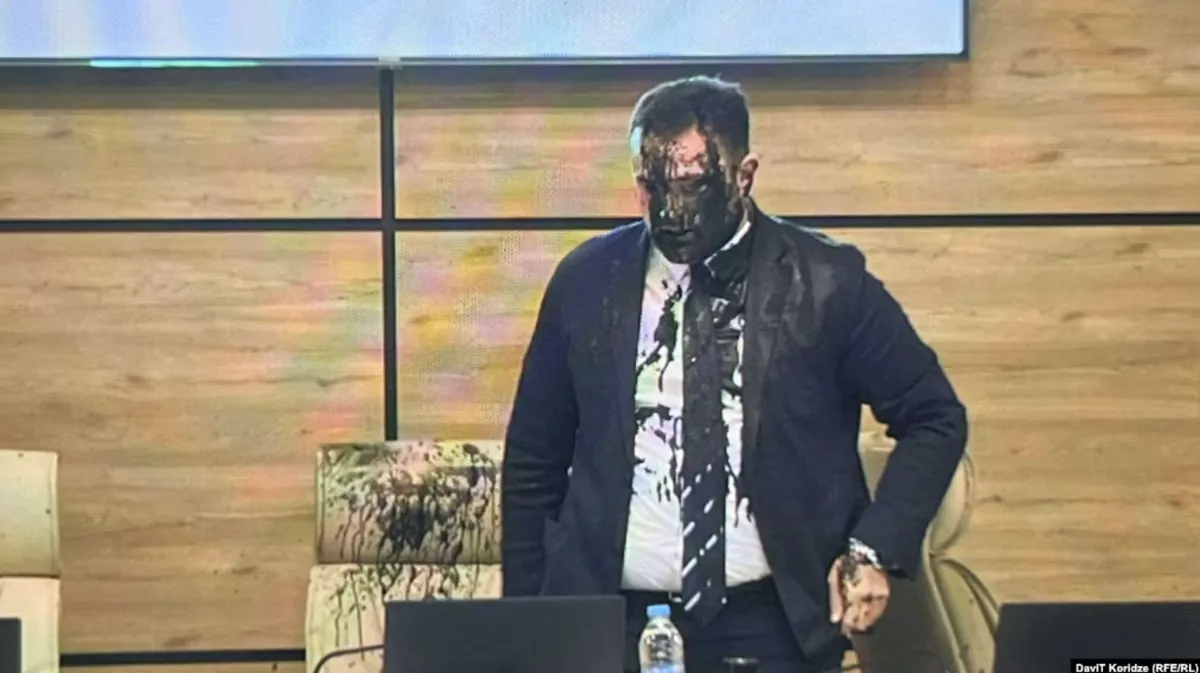“The head of the CEC of Georgia was doused with black paint during the approval of the election results. Despite the incident, the commission approved the election results, where “Georgian Dream” received 54% of the vote.”, — write on: unn.ua
Details
According to reports, a conflict occurred between the head of the Central Committee of Georgia and the representative of the opposition party “Unity – National Movement” Davyd Kirtadze. During the speech, Kirtadze Kalandarishvili turned off his microphone after the scheduled time. In response, a representative of the opposition party splashed a black liquid, presumably paint, on the head of the CEC.
“You don’t listen to the Georgian people, you don’t listen to the protesting students. You took away the future of Georgia, our future, and you are pushing our country towards Russia. I can’t even call you the head, you are a “ru point”. You are a black spot,” said Kirtadze .
The meeting was stopped, after a pause the head of the CEC appeared with a blindfold.
As a result, the Central Election Commission of Georgia, as reported, officially approved the results of the parliamentary elections held on October 26. According to the Central Election Commission of the country, the ruling party “Georgian Dream” won almost 54% of the votes, thereby securing 89 seats out of 150 in the parliament.
“Coalition for Changes” receives 19 deputy mandates, “United National Movement” – 16, “Strong Georgia” – 14, “For Georgia” – 12 deputy mandates.
Those who disagree with the election results gathered near the building of the Central Committee of Georgia. After the commission meeting was over, the protesters started swinging the fence. The police tried to push the participants of the rally from the road to the sidewalk, detentions and clashes began.
Addition
The President of Georgia, Salome Zurabishvili, and the opposition parties did not recognize the results of the parliamentary elections held in the country – against the background of hundreds of violations discovered by observers and questions regarding the observance of the secrecy of the vote. The Central Election Commission of Georgia and the ruling Georgian Dream party deny any falsifications.
Analysts who have analyzed data from polling stations point to anomalies in the distribution of votes, which may indicate falsifications: casting ballots, driving away or bribing voters in rural areas. Observers noted similar violations at the elections in Georgia.
The Parliamentary Assembly of the Council of Europe (PACE) in its report on the recent elections in Georgia recorded “instances of vote buying, a widespread atmosphere of pressure and organized party intimidation before and during the elections, especially in rural areas.”
The non-profit monitoring organization “Fair Elections” (ISFED) recorded cases of hitchhiking, bribery and “carousels” among other violations.
